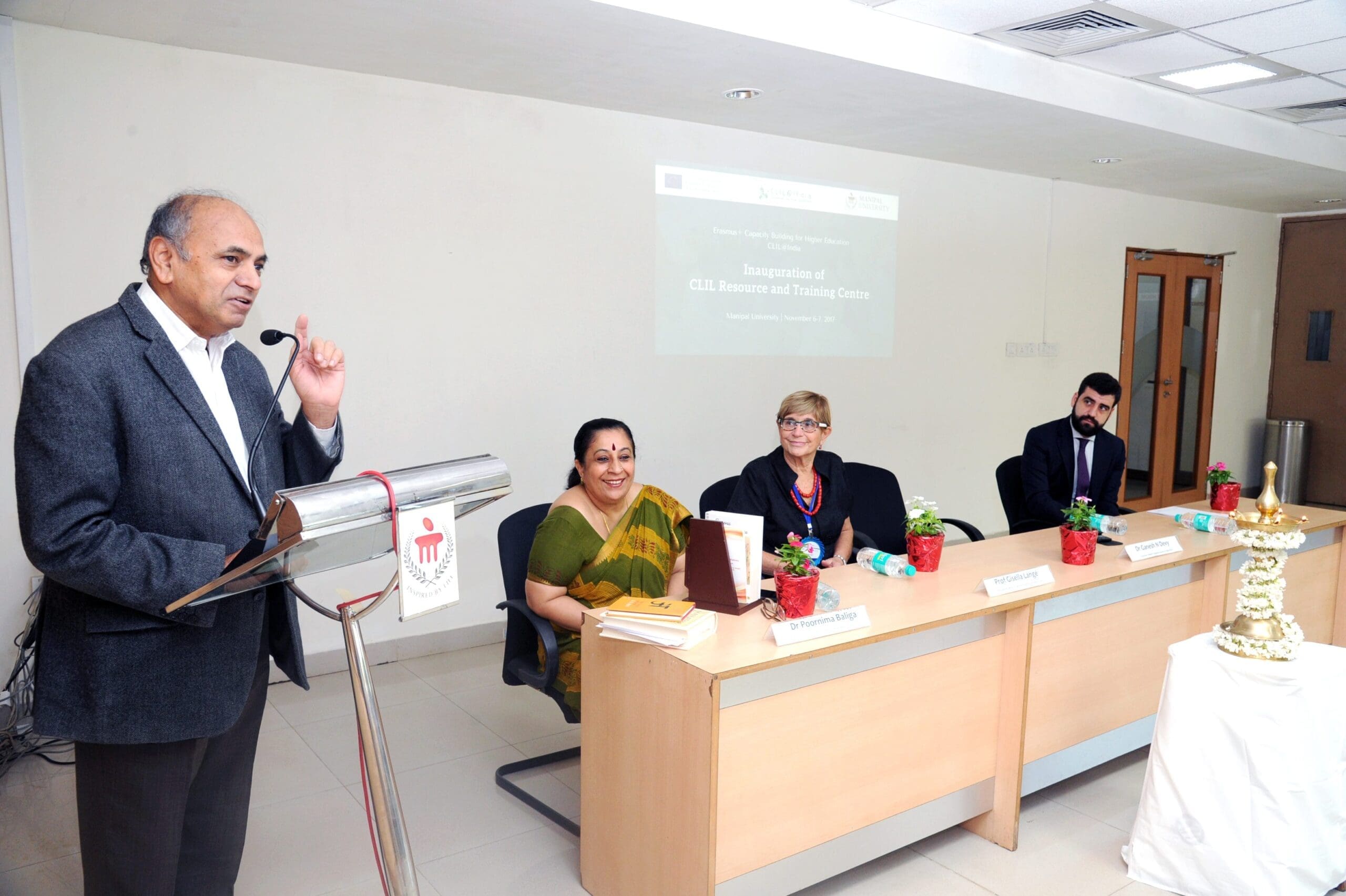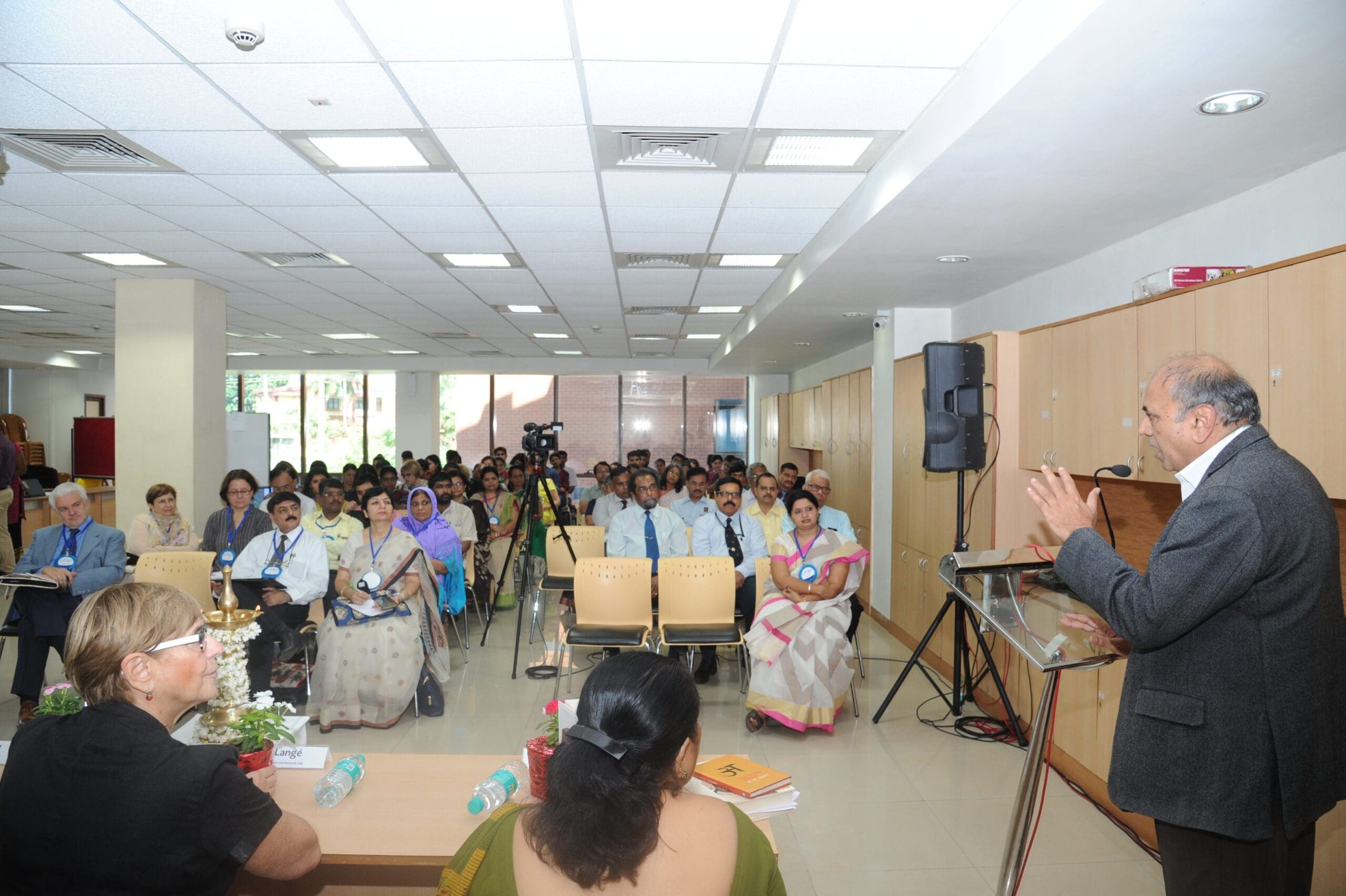
“India is that rare example of a country that did not lose its linguistic diversity despite the colonial experience,” said Dr. Ganesh N Devy, Chairman of the People’s Linguistic Survey of India (PLSI). He was speaking at the inauguration of the Content and Language Integrated Learning (CLIL) Resource and Training Centre at Manipal University on Monday, which will promote bi-lingual education in schools.
“In an age where 35 per cent of the world’s eight billion people are migrants of some sort, the individual question of language identity becomes as important as the collective question of national identity,” he added. In an inaugural address that mapped the issue of languages on the Indian subcontinent over a millennium, Dr. Devy made a strong case for using translation as a practice to bridge the gap between “the language of knowledge” and the “languages of everyday lived realities.”
Recounting her experience as a doctor, Pro-Vice Chancellor of Manipal University Dr Poornima Baliga reiterated the need for multilingualism as a way to connect with people, and extended the university’s support to the CLIL@India project that will open similar research and training centres this week in Pune, Chandigarh and Puducherry co-funded by the Erasmus+ programme of the European Union.
Senior Advisor, Italian Ministry of Education Ms. Gisella Langé drew on similarities between the Indian and the European Union’s experience in terms of managing the tension between different languages. She expressed optimism for the CLIL methodology to resolve some of the most recalcitrant problems of managing the language question in education. Her sentiments were echoed by Cultural and Press Attaché at the Embassy of Spain in India Mr. Ignacio Vitórica Hamilton.

Be the first to comment